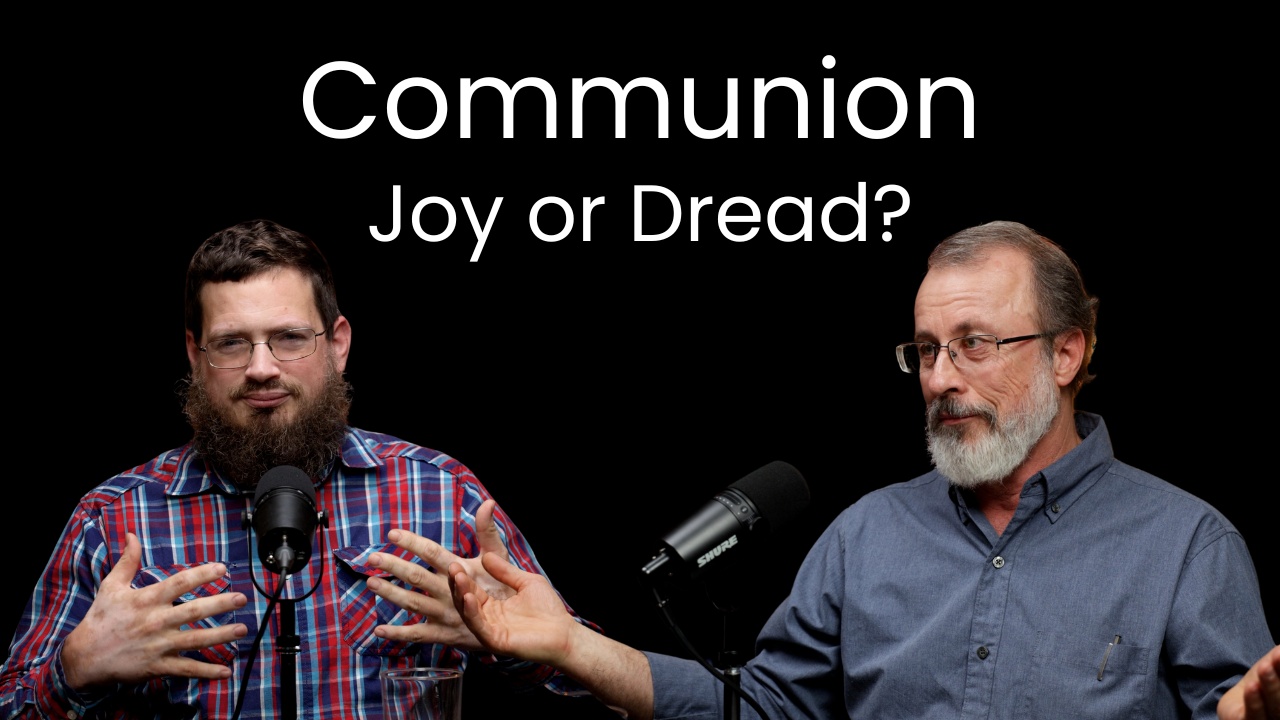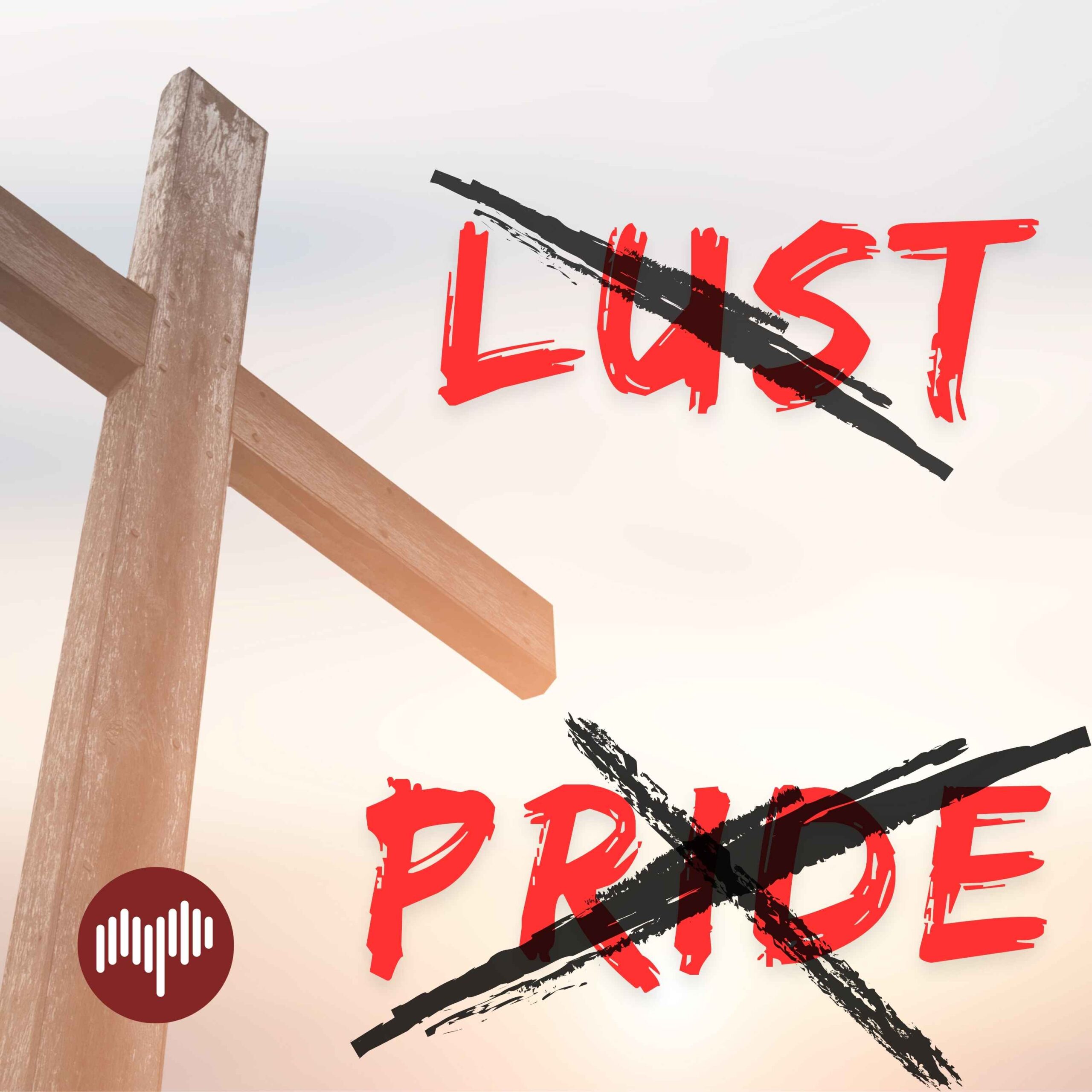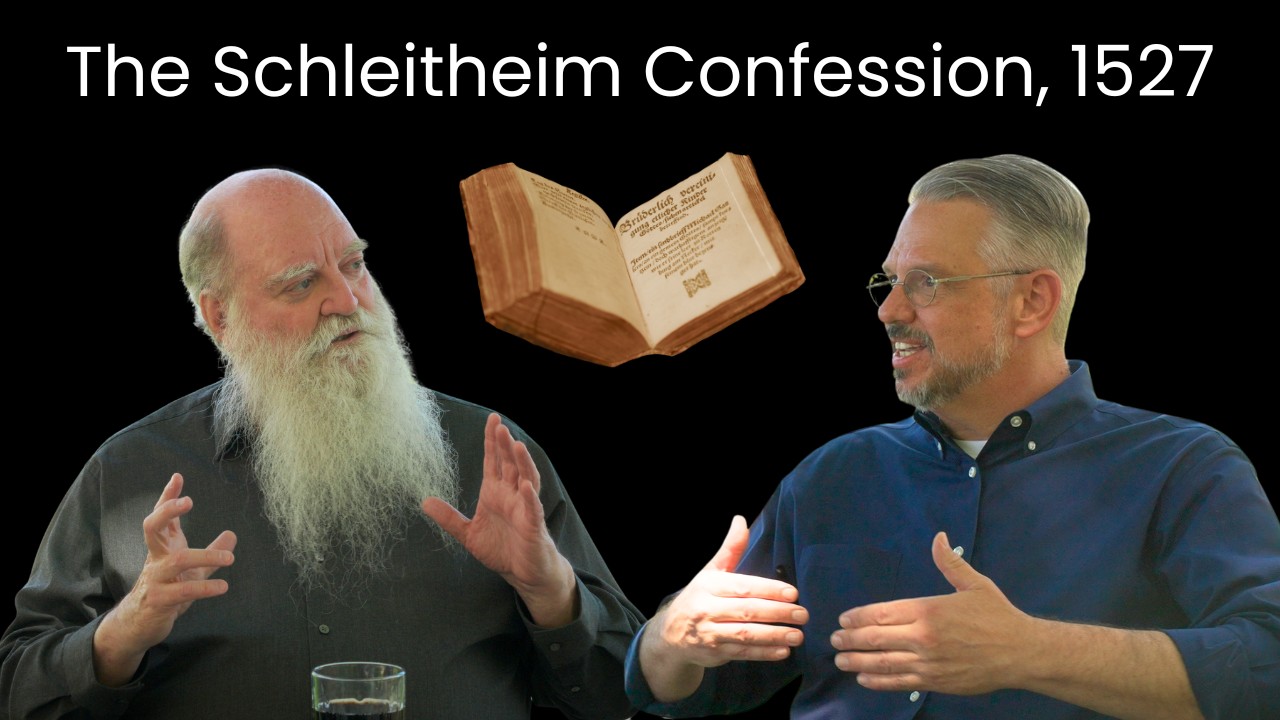The Strange Death of Hidden Life
Jesus went to the cross, not so we need not die, but so we can live. To share his life, we must share his death. Jesus went to the cross alone while his followers fled, hung back, or denied him. Yet, because of Jesus’ victory on the cross, his disciples now follow him in taking up the cross—and in his resurrection life. For all the difficulties and denials of discipleship, the life which is hidden in Christ is a vibrant, delighted affirmation of all that is good. We are tempted to look at what it means to share Jesus’ death and conclude that it is a life of negation, that it is for those who are dour, glum, or just without spirit. On the contrary, the strange death of hidden life is joyful and powerful because it is anchored in the goodness of God. A determined quest to fully live as saints is our only sensible option.
It is Jesus’s own life and death that we share. We have already been inducted into this life and united with him, but this “death-life” must work itself out in our experience. Unless we bear the cross, we cannot be his disciples. Jesus, wrestling in agony, said to the Father “not my will, but yours be done;” we learn to do the same. Jesus was made fun of and taunted; we may be shamed for his name. Jesus chose to suffer from his enemies when he could have inflicted suffering on them; we do the same. Jesus went without royal comforts and had nowhere to lay his head; we also may be made migrants on the earth. Jesus Christ ran the race for the joy that was set before him; we run the same race, though we have not yet resisted to the point of shedding blood in our striving against sin.
The life of Jesus manifests in our lives as we live out of the power of his resurrection. This is an ongoing process. When I speak of how “we” as disciples live, this does not mean that “we” currently fully live this out. Rather, it expresses our identity as those who share the life of Jesus. It is the “new human” that we put on as we put off the “old human.”
The strange death of hidden life is a study in contrasts. This essay reflects on a few of those contrasts. We fast and we feast. We relinquish everything and rejoice in all good things. We can only serve others when we serve Jesus only. We rejoice in trials that form our character, even as we give thanks for flowers and pray God to spare us from trials. Hidden life grows as we relate to God in all of life.
We fast and we feast
Fasting feels like death; we give up for a time the natural pleasures of eating and drinking. Fasting shows us that we can love God and continue to live despite the pains of hunger and unfulfilled desire. Our souls are shaped not to live by bread alone. Fasting expresses our devotion to prayer and our mourning for what is sinful and broken. Fasting forms a pattern for other things in the Christian life. We often forgo legitimate goods, sometimes for the sake of discipline, other times as a side effect of pursuing what God has for us. Perhaps we forgo travel or our preferred lifestyle. Maybe we lack sleep. Maybe it is something as major as forgoing marriage for the sake of devotion to the Lord, or maybe it is marriage partners spending time apart.
But the strange death of hidden life is also shot through with feasting. We celebrate; in fact, failing to celebrate is failing to embrace the goodness of God. Our Lord’s first manifestation of his glory was supplying fine wine for a wedding. On the eve of his death, Jesus instituted a feast which forms a core rhythm of the life of his disciples. We are not anti-physical. We savor, we enjoy, we celebrate, knowing that all good things are holy for those who believe and know the truth.
We relinquish everything and rejoice in all good things
If we would follow Christ, we must hate our parents, our spouses, our children, our careers, and our lives. This “hatred” does not mean we consider these people and situations our enemies, or that we dislike them. Nor is it adequate to say that “we love God so much that our other loves feel like hatred by comparison.” This hatred is not about feelings, but about choices, and about the structure of our lives. Jesus says, “No one can serve two masters, for either he will hate the one and love the other, or he will be devoted to the one and despise the other” (Matthew 6:24). As someone who works multiple jobs, I know well the difficulty in fulfilling responsibility for more than one employer. Fortunately, my employers are just that, employers that have specific limited claims on my life, not slave masters who lay claim to my full life. When it comes to masters, there is no way to give allegiance to more than one. One will get priority.
Disciples have said that Jesus is Lord. This means family and career are not. In the normal course of things, we have responsibilities to these people and roles, but the Lord Jesus limits them. We face the real possibility that family will reject us, or money will escape us. Even when we are blessed with godly family members who support our allegiance to Jesus, our calling may mean extensive times of separation and loneliness as we go where God has called us. We may not live in our preferred geographical area. We may not be able to pursue our preferred line of work.
The disciple reckons fully with all of this but is left with no spite. We delight in the pieces that God does give us to enjoy. Just as importantly, we have no sour grapes toward anyone else. The disciple who is called to be a nomad on the earth blesses the sibling who lives in the house where they were born. The one tied down with duties of family care blesses the traveler. The celibate gives thanks for the marriages of friends. The childless encourages the one caring for small children. The “Peters” who have left home behind to travel with Jesus bless Mary, Martha, and Lazarus who live in their village and host Jesus’s entourage when it comes through. Personally, I am humbled when I reflect on people I know who have relinquished much for the Lord’s sake while at the same time praying blessing into my life in those very same areas. I am summoned to likewise be a person of blessing to those who walk in arenas where I do not walk.
The disciple tastes God’s gifts with joy. One may give up many things and yet be filled with the love of life. I remember a sister who visited our home in a time of intense suffering. We sent her on her way with a bag of homegrown popcorn. She told us later how much of a delight it was to eat that popcorn as she traveled. The disciple not only experiences the things of life growing strangely dim in the light of Jesus, but also all of earth coming newly aglow in the light of his Lordship.
We can only serve others when we serve Jesus only
A great wonder of Christian maturity is that the disciple does not seek to please people and yet seeks to please everyone; he gives account to God alone and yet gives a great regard to others. As Dallas Willard put it in The Divine Conspiracy, “we can only serve them when we serve him only.”1 Theologically, the matter is settled. Only God is to be worshiped. The first commandment is to love God. This demands all our heart, all our soul, and all our strength. Loving our neighbor comes second and “only” demands loving them as ourselves and doing to them as we would have them do to us.
The expectations and needs of others can create large burdens. When we add in the carnality and sin of those around us, these burdens become all the greater. The disciple experiences great freedom in knowing that he stands or falls only in the eyes of his own master. We serve Jesus only. This is a very real and liberating freedom, and yet the disciple is known for his honor to all, even to the extent of being subject to human institutions for the Lord’s sake. (It is within this context that we find the strange New Testament response to the evil of slavery.) Enemies are to be loved and honored (even while we demonstrate the wisdom of snakes.) Within the family of God comes an even greater care and deference. Not only do we recognize the guidance of elders and the rub from people of other gifts, but we even bear with the failings of the weak.
Learning to live this intense love for neighbor while serving God alone is a lifetime pursuit. We seek to please others rather than ourselves. We adapt to the cultures and subcultures around us in order to honor people and commend the Lord Jesus to them. Yet, we are conscious that we are not bound by these adaptations and in fact will need to reverse some of them in other settings. Of course, we are most attuned to other’s good rather than to their comfort. Not provoking them to sin is far more important than not annoying them. Still, we are not looking for needless annoyance either. Our goal is to commend the Messiah.
It can be difficult to tell the difference between godly honor for others and unhealthy conformism. There is often social pressure to conform to a specific mold that, while it may be ok for some, deforms others. The disciple does not add to this pressure. He has an uncowed honor for all people, including those whom society dishonors, and he associates with the lowly. While disciples are willing to inconvenience themselves to accommodate the weak and honor social norms, they also willingly oppose improper strictures and impositions. They may break expectations in order to identify with those harmed by unhealthy social pressure. Sometimes they may break those expectations because they are free in Christ and perceive that while this may annoy some people it will not harm them.
The apostle Paul modeled the strange death of hidden life. He was willing to go to great lengths personally to honor Jewish sensibilities but resisted ferociously attempts to impose those sensibilities on Gentile believers. While he could have a ministry associate circumcised for the sake of Jewish sensibilities and his work, he recognized that demands for circumcision could amount to repudiating the freedom that comes from recognizing Jesus alone as Lord. When we share the life of Jesus, we are willing to die to self and our own preferences in order to honor all people. At the same time, we are nourished by the knowledge that we answer to Jesus only. We also share the shame of Jesus’ cross by bearing witness against sin and brokenness and by associating with those people who society or the religious club holds in dishonor.
We rejoice in trials, give thanks for flowers, and ask God to spare us from trials.
Perhaps the most helpful thing for me when dealing with difficulties (and the difficulties of my life have been minor), is to remember how much God cares about making me into a person who is steadfast in the face of difficulty. When I am tempted to grumble or blow things out of proportion, or just wonder why life can’t be easier, I am reminded that God is concerned with what I am becoming.
James tells us that the testing of our faith yields “provenness” which leads to “steadfastness” which leads to perfect maturity. When we remain steadfast in trial, we will become proven and receive the crown of life. Paul tells us that our sufferings result in steadfastness which leads to provenness which produces hope in the work of God. Peter tells us that the provenness of our faith is more precious than gold. Even gold is subject to decay and destruction, but the formation of our souls is eternal.
Of course, we do not look for trouble or testing. We ask God to spare us and to grant our natural needs. We know our weakness and ask God’s protection. We are not complacent about evils thinking that good will come. We work to reduce suffering for others where we can. We may joy in trials, and we may risk them, but we do not seek them.
We give thanks for flowers and food. We sing praises. Just as we must take our difficulties to God and ask him to use them, so we must take our good things to God and ask him to form us in the life of Jesus. Thanksgiving and delight are no less important to putting on the new human than is persevering in trial.
- This phrase is taken from The Divine Conspiracy by Dallas Willard. ↩︎








Marlin Sommers
5 months ago
What do you have in mind? Are you thinking of launching a virtual prayer meeting or discussion group?